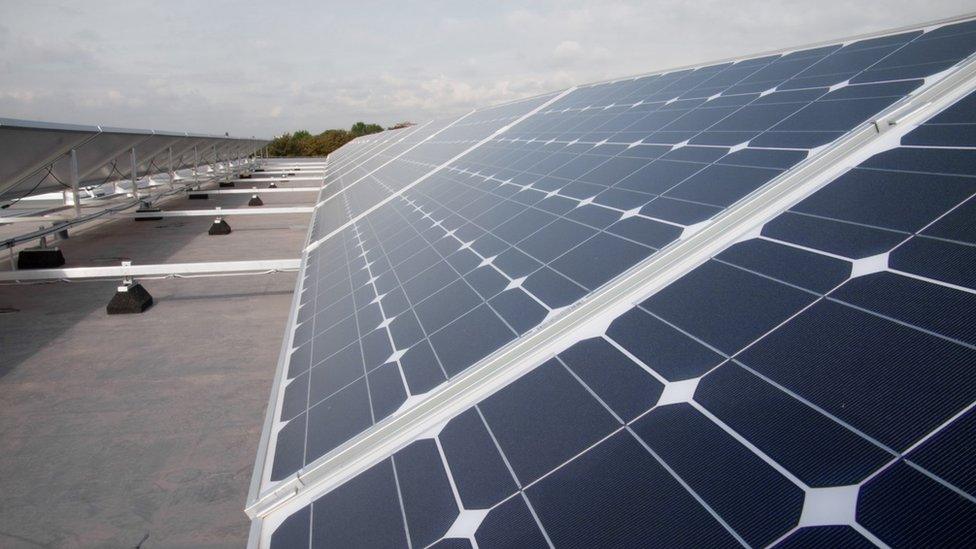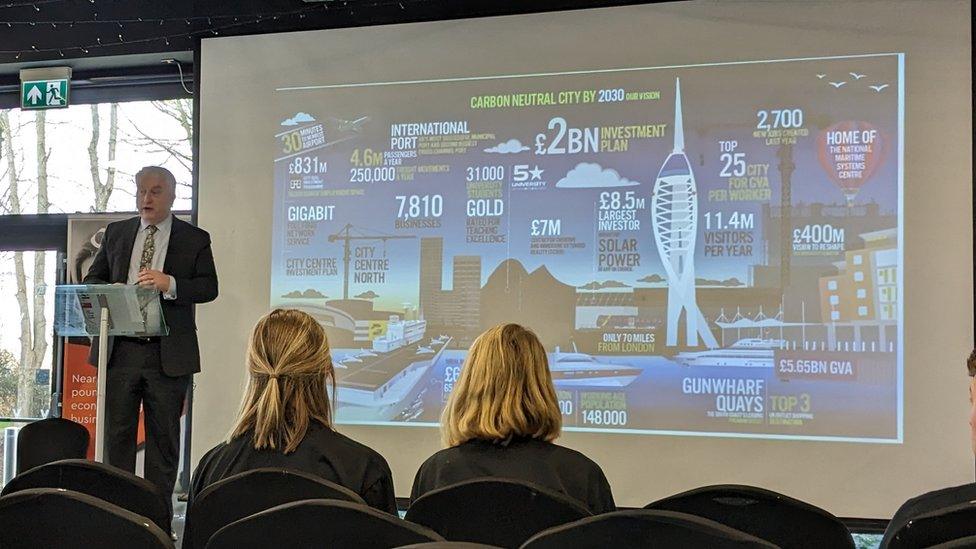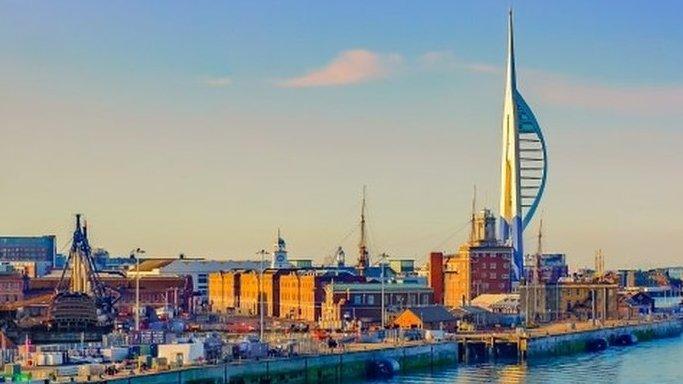Portsmouth City Council claims to be largest investor in solar panels
- Published

Portsmouth City Council will have about 40,000 solar panels by the end of 2024, according to its leader
A south coast city is claiming to be one of the country's biggest public investors in solar panels.
Portsmouth will have about 40,000 solar panels on local authority buildings by the end of 2024, according to council leader Gerald Vernon-Jackson.
The figure was revealed during a meeting with businesses to discuss the city's green economic future.
Mr Vernon-Jackson said every council building had got them.

Gerald Vernon-Jackson explained the council's focus on solar panels, shore power and regeneration of the city
Businesses, training partners and public sector workers met on Friday for an event hosted by the council named The Future is Green.
Mr Vernon-Jackson went through the various green initiatives and strategies the local authority had adopted with a focus on solar panels, shore power and the regeneration of the city centre.
He said the city council was "the largest investor in solar panels" out of any local authority in the country.
"We will eventually get, in a year's time, around 40,000 solar panels on council buildings in Portsmouth.
"You might have noticed at the port that we put covers over the lanes where people queue to put their tickets in.
"The only reason why we've done it is to put more solar panels on - so we can make the port the first carbon-neutral port in the country," the Local Democracy Reporting Service reported him saying.
Mr Vernon-Jackson added the council intended to repeat the exercise at Lakeside car park "to drastically reduce the electricity bills which are enormous".
The council said it had a total capacity exceeding 6.3MW, equating to more than 20,000 individual solar panels and able to provide power to 2,000 homes.
The council said by the end of 2024 it hoped to reduce its carbon footprint by more than 3,000 tonnes per annum.

Follow BBC South on Facebook, external, Twitter, external, or Instagram, external. Send your story ideas to south.newsonline@bbc.co.uk, external.
- Published27 June 2011

- Published29 November 2021
